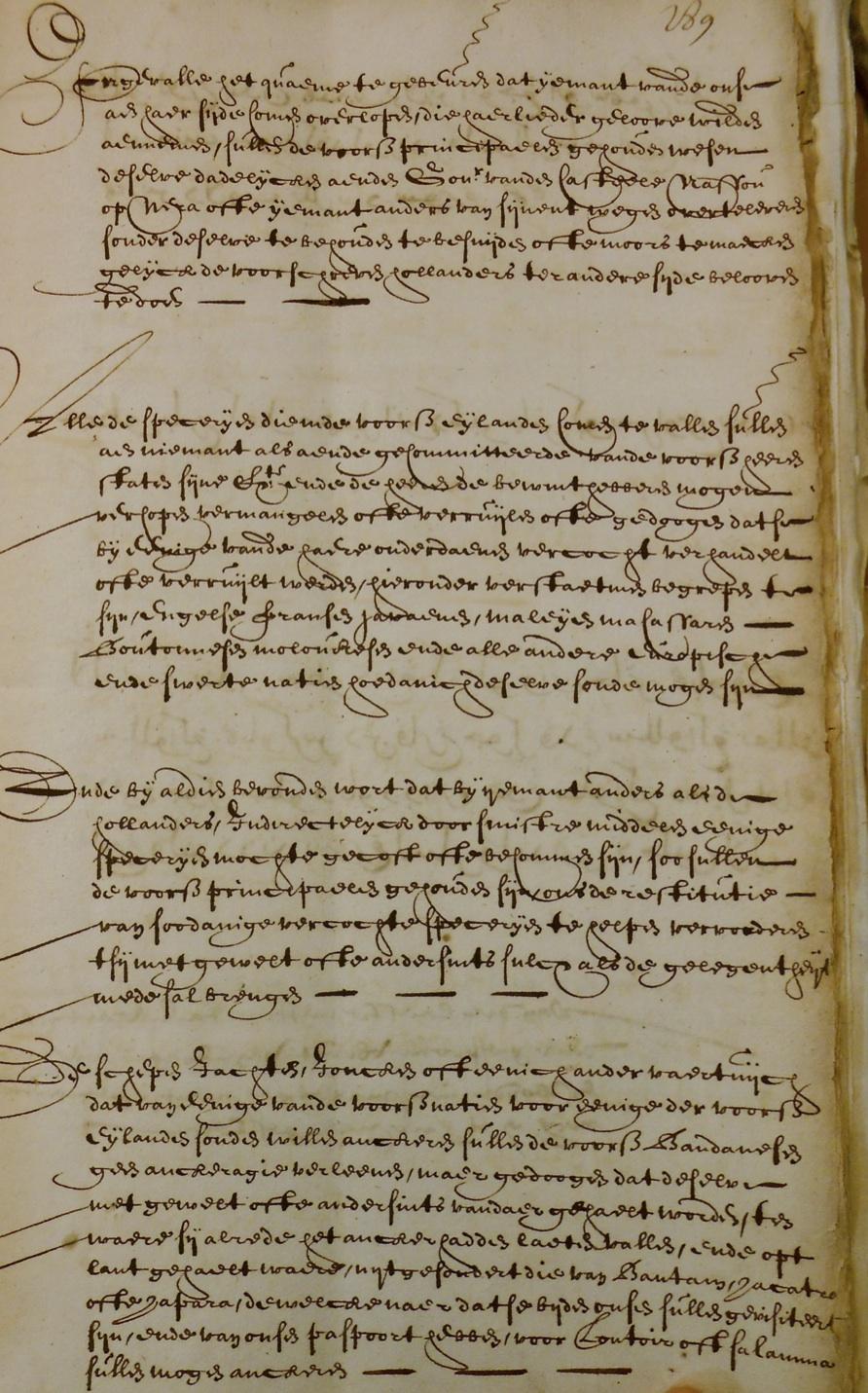1616 Treaty between the Company and the Bandanese
Analysis
The Dutch East India Company used treaties such as this one, which was signed with the leaders of the Banda islands, to secure control over precious spices. When they arrived in Asia, VOC captains and ambassadors carefully and deliberately positioned themselves as the protectors of vulnerable local rulers against the aggressive incursions of Portugal and Spain. In return, the recipients of VOC protection were required to pay offer tribute and the particular form this tribute took was the surrender of control over key commodities, most notably precious spices such as cloves, nutmeg and mace, the sale of which dominated international trade in the region. The protection/tribute exchange found concrete form in dozens of treaties signed between the Company and rulers across the region and it enabled VOC officials to seize control over large parts of the spice trade. Once the VOC had rights to a particular crop, it could use force to defend those rights and this frequently resulted in the steady expansion of Dutch control.

Contract made between Jan Dirckszoon Lam, council of Indies and commander of the fleet, as representative of the High and Might Lord States General, His Excellency and the Lord Directors of the United East Indies Company with the with the orangkayas or principals and other inhabitants of Bandaneira, Puloai, Pulo Run and Rosseingein… All spices that fall in the island, shall be sold, traded or exchanged to no one but the representatives of the States-General, His Excellency and the Directors. This includes the English, French, Javanese, Malays, Makassars, Botonese and other Europeans and black nations, whoever they are. And if it is found that some others than the Hollanders have gained spices through indirect or sinister methods, the abovementioned Bandanese shall help make restitution, with violence or otherwise, such as the circumstances allow.

